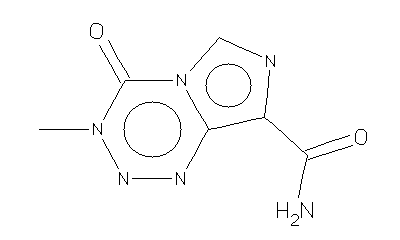Temozolomide, an oral treatment indicated for brain cancer, is at least as effective for metastatic melanoma as the standard treatment, intravenous dacarbazine.
In a study by Dr. Mark R. Middleton and his colleagues, temozolomide was associated with slightly longer survival and with better quality of life than dacarbazine (J. Clin. Oncol. 18[1]:158-66, 2000).
The drug has a good safety profile and offers 100% oral bioavailability with penetration of the blood-brain barrier. It also has an easy route of administration that allows outpatient treatment and prolonged treatment schedules. These qualities make it an "excellent" candidate for combination therapies for metastatic melanoma, said Dr. Middleton of Christie Hospital in Manchester, England, and his colleagues.
He noted in an interview that temozolomide allows patients "to try a line of treatment at little cost to themselves in terms of side effects, time in hospital, and impact on quality of life."
Patients with surgically incurable advanced metastatic melanoma were randomized to receive temozolomide or dacarbazine. Of the 156 patients who received temozolomide, 3% achieved a complete response and 14% had an incomplete response. Of the 149 patients who received dacarbazine, 3% achieved a complete response and 12% had an incomplete response.
The median survival time after diagnosis was 7.7 months in the temozolomide group and 6.4 months in the dacarbazine group.
These differences were not statistically significant, but disease progression--free survival was significantly longer among patients who received temozolomide: 1.9 months, compared with 1.5 months for those who received standard therapy.
Among patients who achieved at least a partial response, 62% in the temozolomide group and 39% in the dacarbazine group survived to the end of the 12-month study Dr. Middletown and his associates said.
After 3 months, the temozolomide patients had significantly better scores on a quality of life questionnaire in terms of physical functioning, fatigue, and insomnia. At that point, 86% reported maintained or improved physical function, compared with 68% of dacarbazine patients. And 96% of the temozolomide patients reported maintained or improved cognitive function, compared with 77% of dacarbazine patients.
There were no major differences between the groups in adverse events, which were mostly mild to moderate and affected 92% of temozolomide patients and 87% of dacarbazine patients.
In patients who took temozolomide, 52% had nausea and 34% had vomiting, compared with 38% and 24% of patients taking dacarbazine. Antiemetics controlled nausea and vomiting well in both groups. Pain was the most frequently reported side effect of the standard therapy at 39%; 34% of patients taking temozolomide complained of pain.
Adverse effects caused 3% of patients taking temozolomide and 5% of patients taking dacarbazine to discontinue treatment. Three patients in each group died from adverse effects that may or may not have been related to medication; there were 18 deaths due to disease progression.
Patients with central nervous system metastases were excluded from the study, but there is evidence that temozolomide penetrates the central nervous system. This feature would constitute an additional advantage over dacarbazine, which requires hepatic activation.
The investigators said temozolomide has been tested in sarcoma and mesothelioma but was not useful for these indications. Trials for breast, colorectal, and lung cancer are underway.
COPYRIGHT 2000 International Medical News Group
COPYRIGHT 2001 Gale Group



